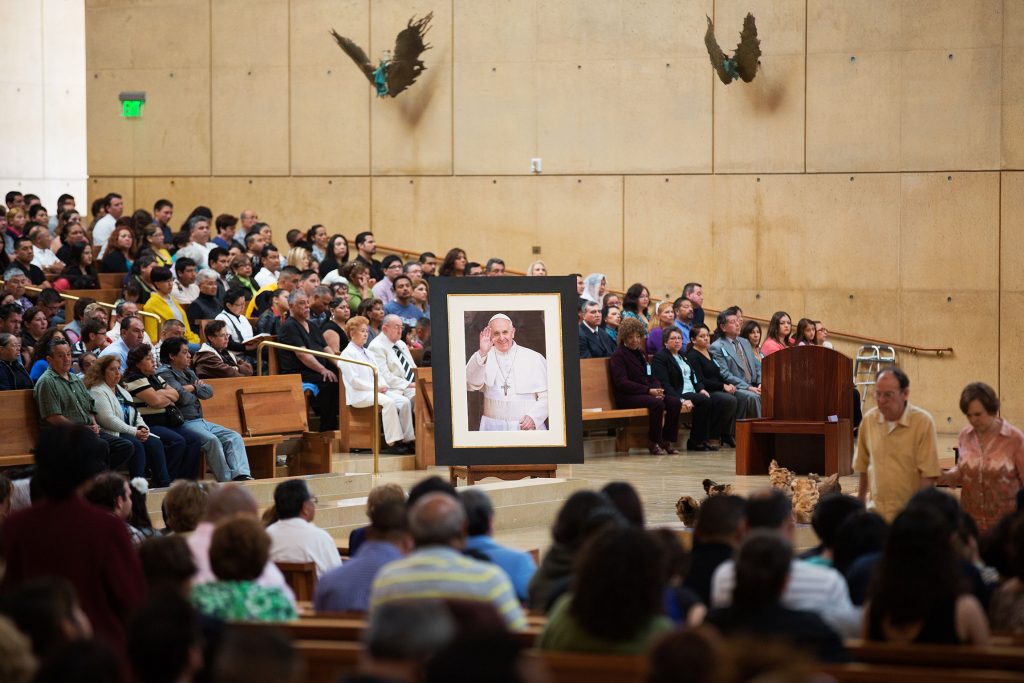On the eve of his fifth anniversary as pope, Francis has hit a rough patch. His angry defense of a Chilean bishop accused of having witnessed clergy sexual abuse backfired disastrously, marring an otherwise successful trip to Latin America and continuing to haunt him upon his return home. Time magazine went so far as to claim in a headline that “Pope Francis has jeopardized his morals.”
Less noticed but also attracting headlines was a kerfuffle over Vatican efforts to improve relations with the Chinese government, and an unwelcome debate in the German Church over the possibility of blessing gay unions.
And all of this follows a long running and increasingly heated debate over “Amoris Laetitia,” Pope Francis’ apostolic exhortation that seeks to address the many challenges facing modern families, including the issue of the divorced and remarried.
Much of this is “inside baseball” for Vatican watchers. Pope Francis still enjoys astounding popularity among Catholics and non-Catholics alike. He captured our imagination early with his humility, his gift for the powerful gesture and his ability to speak in a style at once colloquial and direct.
In some ways Pope Francis was a proto-populist, preceding the wave of populism that has swamped many countries, including our own.
Pope Francis has a gift for speaking directly to people, in words or in simple gestures. From the evening he was elected through the days and weeks that followed, he found ways simple and dramatic to say that this was not a papacy of pomp and ritual. He paid for his room at the hotel. He got a chair for a tired Swiss Guard. He embraced a child with cerebral palsy.
His speech, too, reflected a homiletic style that caught the imagination: the Church as field hospital. The shepherd who must smell like the sheep. The confessional should not be a torture chamber.
Pope Francis has found nontraditional ways (at least for popes) to communicate directly with people, from a wide variety of interviews in various secular and religious newspapers to a ubiquitous presence in social media through his Twitter account and his daily Mass homilies.
Although Pope Benedict gave fascinating book-length interviews and St. John Paul II delivered many speeches and documents, Pope Francis appears to be reaching a much wider audience on a regular basis.
Similar to some of the populists who have ascended to power, Pope Francis has an anti-institutional edge to his message.
The cardinals who elected him knew that he had a critique of the Church that he felt was turned in on itself. “When the Church does not come out of herself to evangelize, she becomes self-referential and then gets sick,” he told them.
He has scolded the Church for becoming a church of maintenance and the status quo. In his exhortation that the Church go to the “existential peripheries,” reaching out to the marginalized and the forgotten, he sought to spur its leaders to become men of action and risk.
As a result of all this, the pontificate of Pope Francis has been striking in how it has changed the conversation about the Church. The Church became relevant again, inserting itself into global discussions about poverty, immigration, war and peace, and the environment.
The release of “Evangelium Gaudium” (“Joy of the Gospel”) and “Laudato Si” (“On Care for Our Common Home”), gave many Catholics and non-Catholics a sense of a new vision and a new energy guiding the Church.
And yet in recent months there is no denying that the Barque of Peter has hit some rough waters.
Some of the opposition to Pope Francis has come from those who are unsettled by the political and economic implications of his message on poverty or migration or the economy, although he is saying nothing his predecessors haven’t said.
Other critics are genuinely concerned that Church doctrine is in danger of being undermined in a rush to address pastoral wounds.
Conflict and debate are nothing unusual for the Church, as many of us remember from the days of St. John Paul II. How Pope Francis negotiates these conflicts will, however, have an impact on how his next five years are perceived.
Of immediate importance will be how he can dramatically make clear that no one, regardless of title or power, will be immune from punishment when it comes to committing, tolerating or covering up sexual abuse.
Recalling all that has happened in the first five years of his pontificate, Catholics should still appreciate the excitement and the energy that Pope Francis has brought to the Church, and the remarkable timeliness of his vision: a people on fire with the gospel going forward and outward to the streets and the highways, to the geographic and the existential peripheries of our suffering world, and bringing to them the joy of the gospel.
Greg Erlandson is editor-in-chief of Catholic News Service.

